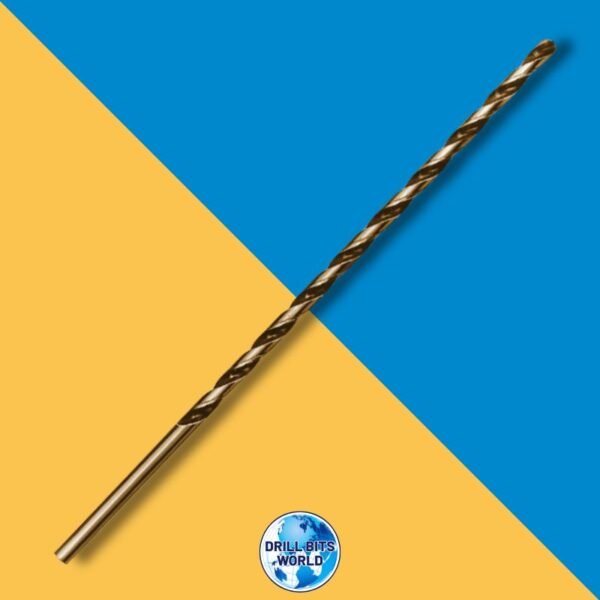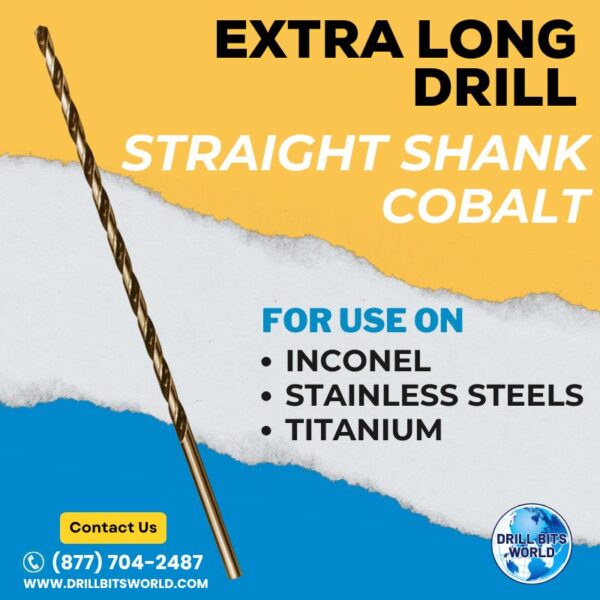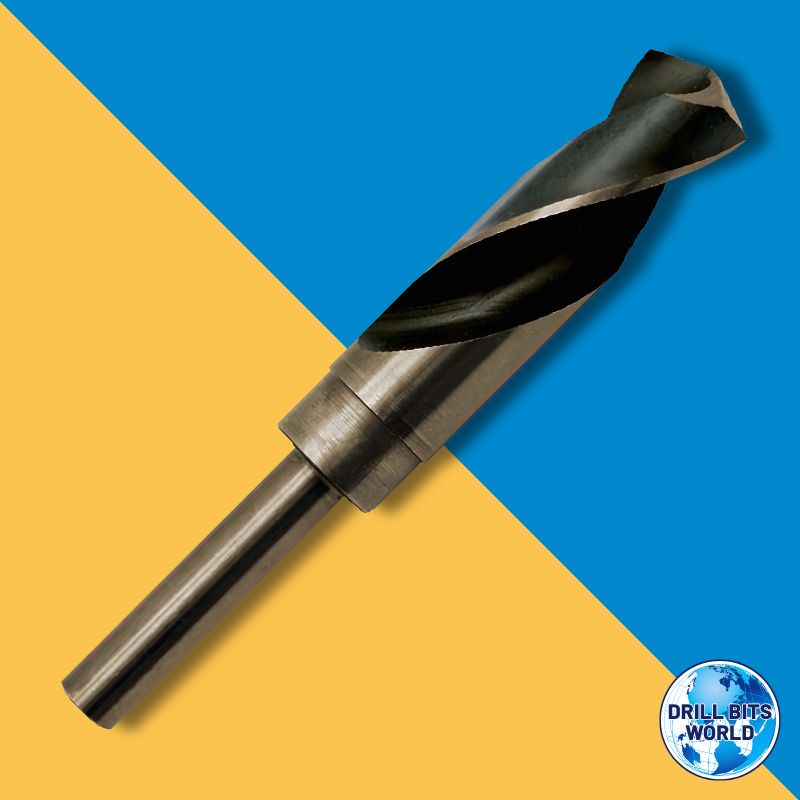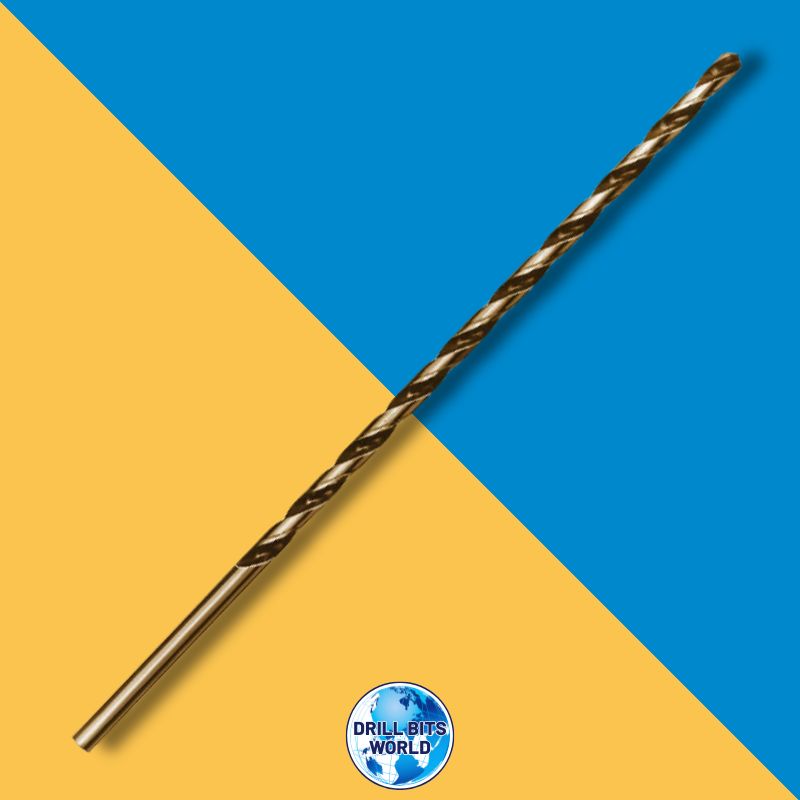19/64 – Cobalt Extra Long Drill Bit – 8″ Overall Length – 5-1/2″ Flute Length
$56.34
Discover the 19/64 – Cobalt Extra Length Drill Bit, a top-tier tool for professionals and DIY enthusiasts. With an 8-inch overall length and 5-1/2 inch flute, it offers extended reach and precision. Its 135-degree point ensures efficient cutting through various materials, while durable cobalt construction guarantees strength and longevity. Ideal for construction and home improvement, this drill bit delivers reliable and precise drilling solutions.
- Description
- Additional information
- FAQ's
Description
Introducing the 19/64 – Cobalt Extra Long Drill Bit, a premium cutting tool designed for both professionals and DIY enthusiasts seeking precision and durability. With an overall length of 8 inches and a flute length of 5-1/2 inches, this drill bit provides extended reach for precise drilling tasks. Its 135-degree point ensures efficient cutting and minimizes walking, making it ideal for drilling through a variety of materials. Crafted from durable cobalt, this drill bit guarantees exceptional strength and longevity, making it a reliable choice for construction projects and home improvement tasks. Trust this high-quality drill bit to deliver efficient and dependable drilling solutions every time.Additional information
| Weight | 1 lbs |
|---|---|
| Dimensions | 8 × 1 × 1 in |
| Diameter Size | 19/64 |
| For Use On | Inconel, Stainless Steels, Titanium |
| Material | Cobalt |
| Flute Length | 5-1/2 |
| Overall Length | 8 |
| Point | 135 Degree |
| Shank Type | Straight |
| Size Type | Fractional |
FAQ's: Extra Long Drill Bits
Do extra long drill bits come in metric and inch sizes?
Yes—available in both measurement systems depending on the application.
What’s the best speed for drilling with extra long bits?
Slower speeds for larger diameters and harder materials, higher speeds for small diameters in softer materials.
Can extra long drill bits be resharpened?
Yes—if they are HSS or cobalt. Carbide-tipped versions may require professional sharpening.
What is the difference between an aircraft extension bit and a jobber length bit?
Aircraft extension bits are much longer and designed for deep or hard-to-reach drilling, while jobber bits are standard length for general drilling.
How do you store extra long drill bits?
Use protective sleeves, racks, or cases to prevent bending and tip damage.
Do extra long drill bits break easily?
They can if misused—avoid side pressure, excessive speed, or forcing the cut.
How do you prevent an extra long drill bit from wandering?
Start with a short pilot hole using a standard-length bit, then switch to the extra long bit for full depth.
Can you use extra long drill bits in a hand drill?
Yes, but longer bits flex more—keep speeds moderate and apply steady, even pressure.
Can extra long drill bits drill metal?
Yes—use cobalt or carbide-tipped versions for hard metals like stainless steel, and apply lubrication.
What materials are extra long drill bits made from?
Typically high-speed steel (HSS) for general use, cobalt for hard metals, and carbide-tipped for masonry or abrasive materials.
What are extra long drill bits?
Drill bits with an extended flute and shank length designed to reach deep or hard-to-access areas while maintaining hole accuracy.
Why do people use long drill bits?
Long bits are used to drill through thick materials, reach into tight or recessed areas, or pass through multiple layers in one go.
What do you call a long drill bit?
They’re often called “extra long drill bits” or “jobber-length,” “ship auger,” or “aircraft extension” bits depending on the design and purpose.
Is there a drill bit extender?
Yes. Drill bit extenders hold the bit securely and add extra reach—great for tight spots or deep holes.
How to extend the length of a drill bit?
You can use a drill bit extender or flexible shaft attachment to add reach without buying a new bit length.
Can you get extra long drill bits?
Yes. Extra long bits are available in various types—twist, auger, spade, and ship auger—ranging from 6 inches up to 48 inches or more.
Are longer drill bits better?
Not always. Longer bits reach deeper spots, but they can flex more and may be harder to control. Use the shortest bit that still gets the job done.









